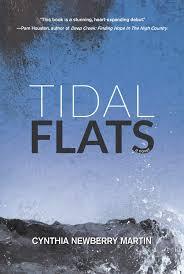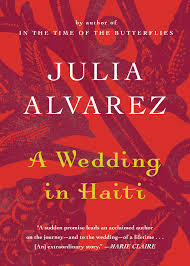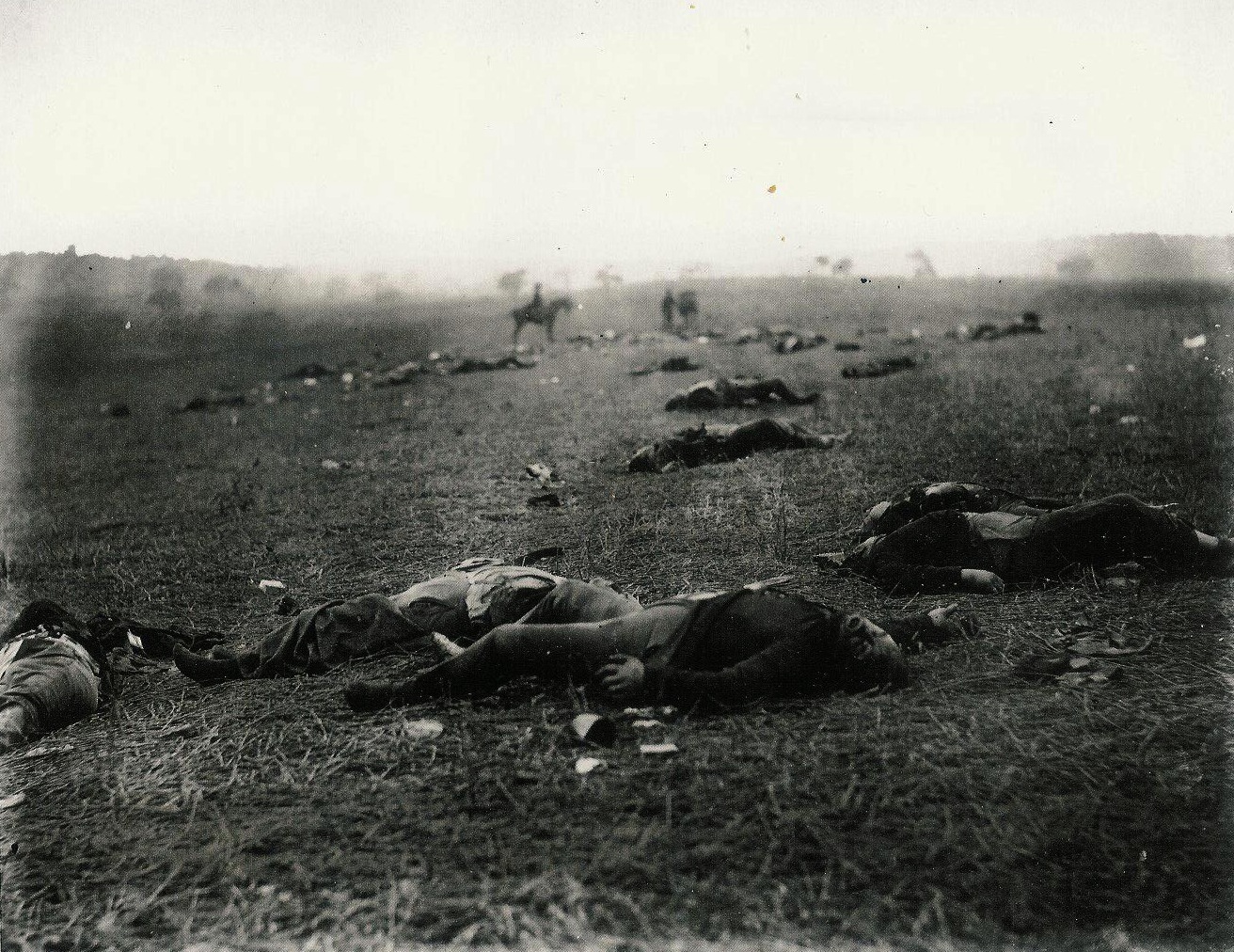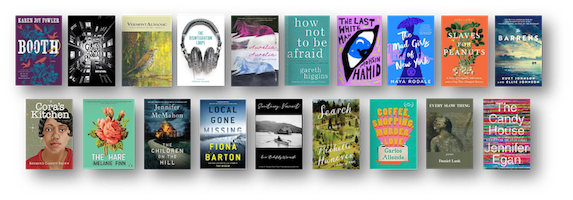
A writing podcast for writers and curious readers, featuring interviews with authors, poets, agents and editors. Twice chosen as one of Writer’s Digest Magazine’s 101 Best Website for Writers. Vermont-grown.
A writing podcast for writers and curious readers, featuring interviews with authors, poets, agents and editors. Twice chosen as one of Writer’s Digest Magazine’s 101 Best Website for Writers. Vermont-grown.
Episodes

Wednesday Jan 22, 2020
Cynthia Newberry Martin - Show #600!!! (1/20/20)
Wednesday Jan 22, 2020
Wednesday Jan 22, 2020

Cynthia Newberry Martin, whose debut novel is Tidal Flats (Bonhomie Press).
This week I’m going to suggest two Write the Book Prompts, both of which were part of my interview with Cynthia.
- First, think of black and white passions for your characters and write in that direction. See if you uncover something new and interesting that might stay black and white, or might become more layered and complex. See where it takes you.
- The second prompt was suggested during the interview by Cynthia, who loves sentences. Turn to a random page in a piece that you are working on and study the sentences you find on that page. Where are the boring ones? What can you get rid of? Do away with anything unnecessary. So many first-draft sentences are boring or unnecessary. After that, try to make the remaining sentences more interesting. In the aftermath of our interview, she added yet another layer to this exercise. As you try to make the remaining sentences more interesting, consider looking Shirley Hazzard’s The Transit of Venus. One example from Cynthia: Instead of “Pearl Harbor was bombed,” or something banal, Hazzard writes, “One hot day Caro looked up Pearl Harbor in the atlas.” This brings the information to the reader by way of character. Try, likewise, to bring information through your own characters, making more interesting and relevant sentences.
Good luck with your work in the coming week, and tune in next week for another prompt or suggestion.
Music Credit: Aaron Shapiro

Monday Jan 07, 2019
Julia Alvarez - Archive Interview #541 (12/31/18)
Monday Jan 07, 2019
Monday Jan 07, 2019

Interview from the archives with Vermont Author and Poet Julia Alvarez about her book, A Wedding in Haiti (Algonquin Books). This show was originally broadcast on RETN and WOMM-LP "The Radiator" in 2012.
This week’s Write the Book Prompt is to write about a wedding through the eyes of the photographer, the caterer, or the officiant.
Good luck with your work in the coming week, and please listen next week for another prompt or suggestion.
Music Credit: Aaron Shapiro

Tuesday Jun 24, 2014
Philip Graham - Interview #299 (6/23/14)
Tuesday Jun 24, 2014
Tuesday Jun 24, 2014
Write the Book's 300th (!) episode features an interview with Philip Graham, author of two story collections, The Art of the Knock and Interior Design; a novel, How to Read an Unwritten Language; and The Moon, Come to Earth, an expanded version of his series of McSweeney's dispatches from Lisbon. He is also the co-author (with his wife, anthropologist Alma Gottlieb) of two memoirs of Africa, Parallel Worlds (winner of the Victor Turner Prize), and Braided Worlds. Dzanc Books will reprint The Art of the Knock, Interior Design, and How to Read an Unwritten Language as ebooks this summer.
This week’s Write the Book Prompt is inspired by the interview you heard today with the author Philip Graham. We spoke about the appearance of objects in written work. As Philip mentioned, his 1979 short story, “Light Bulbs,” chronicled how a couple coping with the “empty nest” grew to form relationships with the light bulbs in their home, almost as a substitute for their absent children. This week, as you work, consider the objects that show up in your work. In particular, pay attention to those objects that already exist there. Try to understand what they might be doing for your story, and how your appreciation of their existence might deepen what you’re writing.
Good luck with this prompt and please listen next week for another.
Music credits: 1) “Dreaming 1″ - John Fink; 2) “Filter” - Dorset Greens (a Vermont band featuring several former South Burlington High School students, now alums).

Monday Jan 27, 2014
James Tabor - Archive Interview #280 (1/27/14)
Monday Jan 27, 2014
Monday Jan 27, 2014
This week’s Write The Book prompt is to write about an adventure you've had as an adult.
Good luck with this exercise and please listen next week for another.
Music credits: 1) “Dreaming 1″ - John Fink; 2) “Filter” - Dorset Greens (a Vermont band featuring several South Burlington High School students.

Saturday Nov 23, 2013
Tim Brookes - Archive Interview #270 (11/18/13)
Saturday Nov 23, 2013
Saturday Nov 23, 2013
Interview from the archives with Tim Brookes, author of eleven books, including Thirty Percent Chance of Enlightenment.
Good luck with this exercise and please listen next week for another.

Tuesday Nov 05, 2013
Susan Katz Saitoh / Claire Benedict - Interview #268 (11/4/13)
Tuesday Nov 05, 2013
Tuesday Nov 05, 2013
1) Vermont author Susan Katz Saitoh, whose book Encounter With Japan: An Adventure In Love chronicles her mother's trip to Japan, over 50 years ago, to meet her pen pal.
2) The second WTB Book Chat with Claire Benedict, of Bear Pond Books in Montpelier. Claire talks about The Goldfinch, by Donna Tartt; Karen Joy Fowler's We Are All Completely Beside Ourselves; A Tale For The Time Being, by Ruth Ozeki; My Brilliant Friend, by Elena Ferrante ; A.S.A Harrison's The Silent Wife; and Richard Russo's Elsewhere.
Today's Write The Book Prompt was suggested by my first guest, Susan Katz Saitoh: Write a story that is true but sounds like it's not true, or a story that is not true but sounds like it is true. A Japanese mime and storyteller from Massachusetts gave that as an exercise during the only storytelling workshop Susan ever attended.
Good luck with this exercise and please listen next week for another.
Music credits: 1) “Dreaming 1″ - John Fink; 2) “Filter” - Dorset
Greens (a Vermont band featuring several South Burlington High School
students.

Friday Oct 25, 2013
Neil Shepard - Interview #264 (10/7/13)
Friday Oct 25, 2013
Friday Oct 25, 2013
Award-winning Vermont poet Neil Shepard, whose latest book,(T)ravel/Un(t)ravel, was published by MidList Press.
This week I have four Write The Book Prompts to offer, thanks to Neil Shepard's generous suggestions. The first focuses on poetic identity.
1. Select at least six (6) items from the choices below and mix them into an Identity Poem that reveals who you are (or some disguise of you, or some totally fictional you). Add whatever other language you need to patch the disparate parts of the poem together. Here’s the list:
- briefly describe a significant or recurring dream
- what is your totemic animal, and why;
- which element (earth, air, fire, water) are you, and why
- borrow a phrase from a famous poem that fits your identity
- use a guide book on flowers, trees, birds, or stars to discover a few natural objects that correspond to your identity
- feed your full name into an anagram scrambler and select a few phrases that seem to describe you
- what truths do you live by (be specific)
- what lies do you live by (be specific)
- if you could be anybody who has lived on this earth, who would it be
- if you could be a fly on a wall, where would you like to land
- if you could be a ghost, who would you like to haunt
- what is your secret power and your secret weakness (other than kryptonite)
- a couple having sex
- a truck driver riding a big-rig across the Great Plains
- a machine operating in a factory
- a religious sermon
- a ping-pong match
- a rollercoaster ride
- a sky-dive
- an interrogation scene (either at a police station or in a courtroom)
4. This last prompt is for writers bored with "the self": The poet Phillip Levine has said about the autobiographical impulse: “Why would we want to write about ourselves, if we can imagine and write about anybody else in history?” For this exercise, adopt a historical figure – someone decidedly not you – who lived at least 100 years ago. Research the person, the historical period, the dramatic events central to the poem you will write, and then write the poem from this person’s perspective and voice. Remember to make the poem vivid and externalized – don’t create an abstract monologue that neglects references to the time, place, characters, and events of this historical period. (It helps to imagine a dramatic moment in time.)
So there you go, four prompts from Neil Shepard. Good luck with these exercises, and please listen next week for another!
Music credits: 1) “Dreaming 1″ - John Fink; 2) “Filter” - Dorset Greens (a Vermont band featuring several South Burlington High School students.

Tuesday May 14, 2013
Robert and Martha Manning - Interview #243 (5/13/13)
Tuesday May 14, 2013
Tuesday May 14, 2013
Robert and Martha Manning, Vermont authors of Walking Distance: Extraordinary Hikes for Ordinary People, published by Oregon State University Press. Today's Write The Book Prompt, of course, involves walking. On a piece of paper, write down a problem you've been having in your written work. You might write something very general, like setting. Or you might write something more detailed, like, Why is Melody so afraid of dogs? You might write a few lines from a poem, and then add "structure," or "line breaks," if the poem's structure has been giving you a hard time. Fold up the piece of paper and put it in your pocket. Then go for a walk. While walking, look around, enjoy the day, enjoy the beauty of the environment. Do not re-read the words while you're out. Don't focus on the problem, but let it sit in your pocket, a quiet presence that needs resolution. Then go back to your desk, right away when you get home, and start to write. Good luck with this exercise and please listen next week for another. Music credits: 1) "Dreaming 1″ - John Fink; 2) "Filter" - Dorset Greens (a former Vermont band featuring several South Burlington High School graduates).

Tuesday May 07, 2013
Kathryn Guare - Interview #242 (5/6/13)
Tuesday May 07, 2013
Tuesday May 07, 2013
Vermont author Kathryn Guare, whose novel, Deceptive Cadence: The Virtuosic Spy, Book I, came out in April.
Today's Write The Book Prompt was suggested by my guest, Kathryn Guare. When she's out in the world, just going about her life, she will sometimes be inspired to consider how her characters might experience a certain moment in time. So, for example, if Conor were at the farmer's market and interacting with this a particular farmer or cheese maker or artist, how might he speak to that person? This week, keep your characters in mind as you go about your non-writing day. How would they speak and behave and react to others, if they were navigating through your world? Good luck with this exercise and please listen next week for another. Music credits: 1) "Dreaming 1″ - John Fink; 2) "Filter" - Dorset Greens (a former Vermont band featuring several South Burlington High School graduates).
Monday Dec 31, 2012
Rowan Jacobsen - Archive Interview #224 (12/31/12)
Monday Dec 31, 2012
Monday Dec 31, 2012
Interview with Vermont Writer Rowan Jacobsen. We discussed his book The Living Shore: Rediscovering a Lost World. His latest book is Shadows on the Gulf: A Journey through Our Last Great Wetland. Both books were published by Bloomsbury.

Saturday Oct 20, 2012
John Huddleston - Interview #214 (10/15/12)
Saturday Oct 20, 2012
Saturday Oct 20, 2012
Interview with Middlebury College Art Professor and Photographer John Huddleston, author of Killing Ground: Photographs of the Civil War and the Changing American Landscape (2003, Johns Hopkins University Press) and Healing Ground: Walking the Farms of Vermont (2012, Center for American Places). Today's Write The Book Prompt is actually a series of photographs included by my guest, John Huddleston, in his books Killing Ground and Healing Ground. Here you'll find photos that we specifically discuss in the interview, as well as a few others that you might likewise find inspirational. I hope these images speak to you and encourage your writing process. And, as ever, please tune in next week for another prompt. Music credits: 1) “Dreaming 1″ - John Fink; 2) “Filter” - Dorset Greens (a Vermont band featuring several former South Burlington High School students, now alums).

1 - 3 July 1863
Gettysburg, Pennsylvania
The Union Dead
***

51,112 American Casualties
Gettysburg, Pennsylvania
In the early afternoon of the first day, the Confederates forced the Federals to retreat from this position just north of the college.
***

70,000 American Casualties
Petersburg, Virginia
Bombproof Quarters of Fort Sedgwick, a Key Position on the Eastern Union Siege Line
***

15 June 1864 - 2 April 1865
Petersburg, Virginia
***

27 June 1862
Gaines' Mill, Virginia
Federal dead from Gaines' Mill were photographed in 1865 after their shallow graves had been exposed.
***

15, 587 Casualties
Gaines' Mill, Virginia
Center of the Battle Lines, Site of Several Unsuccessful Confederate Charges
***

6 - 7 April 1862
Shiloh, Tennessee
The guns of the USS Lexington (background) shelled the Confederates throughout the evening and night of 6 April.
***

23,746 Casualties
Shiloh, Tennessee
Bloody Pond. Here the wounded from both sides dragged themselves to drink and to die.
***

19 May - 4 July 1863
Vicksburg, Mississippi
Bombproof Quarters on the Union Line at the Shirley House
***

37,293 American Casualties
Vicksburg, Mississippi
Iraq-bound National Guardsmen at the Shirley House, July 1990
***

Cows in a Stall.
***

Manure Pond.
***

Pods/Grass/Snow.
***

Ice Columns Sculpture.
***

Car Tracks on the Snow.
***

Thursday Mar 29, 2012
Natasha Saje - Archive Interview # 185 (3/26/12)
Thursday Mar 29, 2012
Thursday Mar 29, 2012
2009 interview from the archives with award-winning poet Natasha Sajé. Today's Write The Book Prompt is to draft an essay for the New York Times Modern Love column. Their submission guidelines include the following advice: "The editors of Modern Love are interested in receiving deeply personal essays about contemporary relationships, marriage, dating, parenthood...any subject that might reasonably fit under the heading Modern Love. Ideally, essays should spring from some central dilemma the writer has faced in his or her life. It helps if the situation has a contemporary edge, though this is not essential. Most important is that the writing be emotionally honest and the story be freshly and compellingly told." So draft an essay for the column. Set it aside for a week. And then decide what, if anything, you might want to do with it. Revise and perfect it and send it to the NY Times. Or take the material you put into that draft and turn it into a poem or a story or a new aspect of another work in progress. Or maybe you won't want to take it further. But the act of creating that first draft is your prompt for this week. Good luck with this prompt, and please listen next week for another! Music credits: 1) "Dreaming 1″ - John Fink; 2) "Filter" - Dorset Greens (a Vermont band featuring several former South Burlington High School students).

Tuesday Mar 06, 2012
Mark Pendergrast - Interview #182 (3/5/12)
Tuesday Mar 06, 2012
Tuesday Mar 06, 2012
Vermont author Mark Pendergrast, whose latest book is Japan's Tipping Point: Crucial Choices in the Post-Fukushima World.
Inspired by our guest Mark Pendergrast's interest in Japan, this week's Write The Book Prompt is to fold an origami crane. If you get stuck in your writing, or are simply wanting an activity that keeps you thinking, but not struggling, folding an origami animal might help. You'll still be engaged in a creative act, but you'll be following a set list of instructions, which might free the author in you to continue working away from the computer keyboard. Below are a few links to origami paper folding (all from the same site, which seemed easy to follow and not full of annoying ads). You can also print the Write The Book logo I've included below that for colorful folding paper. Or use a sheet from your recycle bin: maybe a rejected poem or scene can have a second life as a crane, a frog, or a flower.
Good luck with this prompt, and please listen next week for another!
Crane
Flower
Frog


Monday Dec 26, 2011
Joan Leegant - Interview # 172 (12/19/11)
Monday Dec 26, 2011
Monday Dec 26, 2011
Joan Leegant, Award-winning Author of Stories and the Novel, Wherever You Go, published by Norton. Today I have two Write The Book Prompts to suggest, both of which were generously offered by my guest, Joan Leegant. First, write titles: maybe ten of them. Pick one, and start writing. Let the title you've come up with and chosen be the impetus that feeds what you write. Joan's second suggestion is to read someone else's book for an hour and then write ten first lines of your own. Pick one, and go from there. Reading another book first will put your mind into the language of fiction, and can help to feed the first lines you write. Good luck with these exercises and please listen next week for another. Music credits: 1) “Dreaming 1″ - John Fink; 2) “Filter” - Dorset Greens (a Vermont band featuring several former South Burlington High School students).

Tuesday Jan 04, 2011
Write The Book Interview #124 (1/3/11) Ben Aleshire
Tuesday Jan 04, 2011
Tuesday Jan 04, 2011
Vermont Poet, Musician and Editor Ben Aleshire. Ben founded and edits the Vermont Literary Journal The Salon. This week's Write the Book Prompt was inspired by the interview you heard today with Ben Aleshire. During our talk, Ben read his own "Autumn Poem" that featured, among other things, a stallion. He read another, "The Cock Fight," that featured roosters being set against one another in a cock fight. He also read "After Innocence," a poem by local writer Edie Rhoades that featured swans. Read the following lines from those poems, maybe listen again to those parts of the interview. Then consider animals you've watched and how their beauty or grace, violence or playfulness might be represented on the page using specific detail and precise image. Now ... write!
.
.
The swans feed and come up
first the white rumps high over the water
black feet crabbed and kicking, then
duckweed draped in strings over their bills.
Symbols of grace and flight. The one pure white –
the adult male – I’ve seen him hiss and hunch his wings
stampede across the pond’s face heavy with rage.
This is what swans do.
.
~ From 'After Innocence' by Edie Rhoads
.
.
A different death. Blood, too - lots of it,
crusting in the sand with bits of feather
.
as the trainers clutch the birds to their hearts,
roosters shivering with muscles ready
.
to kill, their neck feathers
flaring out like cobra's hoods:
.
Chile y Blanco, Speckled and White –
.
~ From 'The Cockfight' by Ben Aleshire
.
.
black and shimmering
muscles popping his
nostrils flare his hot breath
streams out in violent puffs
like the barrel of a gun.
.
~ From 'Autumn Poem' by Ben Aleshire
. .
Tuesday Nov 02, 2010
Write The Book Interview #117 (11/1/10) Jay Parini
Tuesday Nov 02, 2010
Tuesday Nov 02, 2010
Interview with Jay Parini, Biographer, Poet, Novelist and Essayist. Author of The Passages of H.M. I'll leave this week's Write The Book Prompt in Jay Parini's exact words, just as you'll hear it when you listen to the interview:
If you're writing a poem, for example, it's important to have one deep image at the center of your poem. So, think of an image and really try to reinforce that image with concrete details. It works for prose as well, to begin with an image. See something. I always tell my students, in writing prose, if you're stuck, go through the senses: sight, smell, sound, taste, touch-the five senses. And try to make a gesture in the direction of each one of those senses.
Just describe a landscape. So I'm looking out the window. I say the autumn light slants across the field. I can smell the dry leaves with their mustiness. I can hear the leaves rattling. There's a cool breeze playing across my skin, which I can feel. I taste the slight acidity in the air.
And - boom - you've got a fall scene. So write for the senses and create images. Remember that an image is not just a picture but as Ezra Pound said, it's a kind of psychological and emotional complex, moving in time.
~ Jay Parini
Good luck with this exercise and please listen next week for another. Excerpt of The Passages of H.M. read with permission from Doubleday, a division of Random House, Inc. Music credits: 1) “Dreaming 1″ - John Fink; 2) “Filter” - Dorset Greens (a Vermont band featuring several South Burlington High School students)
Monday Jun 21, 2010
Write The Book #100 (6/21/10) A Discussion With Four Emerging Writers
Monday Jun 21, 2010
Monday Jun 21, 2010
Anne Trooper-Holbrooke, Coleen Kearon, Benjamin Malcolm, and Susan Ritz: four writers working to develop their craft. This week’s Write The Book prompt was inspired by a comment made by one of my guests. Coleen Kearon mentioned her efforts to introduce more plot, more active scenes into her prose, and to pay attention to the amount of introspection she includes. She described this effort as a move toward plot and away from too much exposition. You may have the same problem. Or perhaps, yours is the opposite problem. If you're a poet, this might not seem like a useful exercise, but the bottom line is balance. Read over your work with an eye to what you use too much of, and how you might rectify that by introducing balance. First, identify the qualities you want to balance. Action and introspection, for example. Or dialogue and exposition. Character interaction and scene setting. Take markers and highlight the parts of your work that fit one versus the other quality that you're trying to balance. Don't judge yourself as you go, but just objectively highlight the differences. And then study your work with this new colorful enhancement and work to right the disproportion. Good luck with this exercise and please listen next week for another. Music credits: 1) “Dreaming 1″ - John Fink; 2) “Filter” - Dorset Greens (a Vermont band featuring several South Burlington High School students.

Tuesday Jun 15, 2010
Write The Book #99 (6/14/10) James Tabor
Tuesday Jun 15, 2010
Tuesday Jun 15, 2010
James Tabor, Author of Blind Descent, discusses cave exploration, writing, and Curtis' "Eighth Wonder of the World" Barbecue in Putney, Vermont.
This week’s Write The Book prompt was inspired by the work of my guest, James M. Tabor. Next time you're considering getting up from your desk and walking away from your writing-against your better judgment-imagine yourself in a cave, two miles below the surface of the earth. Close your eyes, and consider what it might be like to have only the lights that you brought along, only the equipment that you carry on your back. Imagine yourself suspended over water, carefully making your way along the wall of a cave that has a 200-foot vertical drop. This is the sensation that can result in "The Rapture," the kind of panic attack that quickly becomes dangerous for cave explorers. Control your breathing, control your urges to flee. You can't just walk away. You have to finish what you started. Now open your eyes, feel grateful that you're no deeper than the last paragraph that stumped you, and keep writing.
Good luck with this exercise and please listen next week for another.
Music credits: 1) “Dreaming 1″ - John Fink; 2) “Filter” - Dorset Greens (a Vermont band featuring several South Burlington High School students.

Tuesday Mar 23, 2010
Write The Book #89 (3/22/10) Tim Brookes
Tuesday Mar 23, 2010
Tuesday Mar 23, 2010
Interview with local author Tim Brookes about his new book, Thirty Percent Chance of Enlightenment. Prompt: This week, instead of a Write The Book Prompt, I offer what I'm calling an "anti-prompt." When I asked my guest, Tim Brookes, if he had a prompt to suggest, he answered with a very firm "no." Tim does not use prompts, and as a teacher, he does not assign them. When I asked him if I might offer his opinion this week, instead of a prompt, he wrote me the following email. Perhaps you'll find it useful.
I guess I'm anti-prompt for the same three reasons why I'm against that rhetoric/debate exercise where the teacher says, "Which side are you on when it comes to this issue? Okay, in that case, argue the opposite side."
One, I want my writers to discover what they have to say by paying attention to their own inner landscape, their own issues, passions, dark corners.
Two, that's not the way it works in real life.
Three, it takes a writer absolutely at the top of his/her game to be able to pull that off well.
One: it takes a great deal of time and practice for a young writer even to be aware of what s/he has to say, let alone to have the confidence and the means to say it powerfully. To me that's a crucial, crucial goal. Writing to a prompt produces reactive writing--writing to please someone else, writing to respond to someone else--which actually takes the writer's focus away from what is most important to him/her. For the prompt to strike home and hit a subject of genuine urgency and importance to the writer is like throwing a dart across the street and trying to hit the bulls eye of a dartboard on the other side of the traffic. Giving prompts is a way to get writing from the student, but not a way of helping the student become a writer. It's a recipe for bullshit.
Two: In all the twenty years I was writing for NPR--the form that's closest to the kind of short personal essay/poem product that writing prompts are usually intended to provoke-I was only ever asked to respond to a specific subject twice. My best feature-story editor used to say to me, "What do you want to spend three months learning about?" It's true that a good many journalists are given assignments they have to go and cover, but they themselves would rarely claim that daily grind produced their best writing. The fact is, we writers write best about the things that matter to us. Sometimes we can bring that passion to a subject that was assigned to us, but more often that's not the case. If you want student writers to write like professional writers, have them talk to poets/novelists/essayists and ask them, "How do you reach your best writing?" and see what they say. And here's the real problem: none of those writers will say, "I sit down in a regularly scheduled English class at 10:10 every Tuesday and Friday and whatever's going on inside me or around me I always find something to say." Bollocks.
Three: It is possible to write well from a prompt--and in a sense editorial writers do it all the time--but there's a reason why a newspaper's editorials are written by the most seasoned, experienced, widely-read writers on the staff. You need to have an astonishingly wide range of reference in order to have a chance of understanding the subject, let alone saying anything worthwhile; you need a deep sense of form and structure to be able to create a finished piece of given proportions in a limited time; and you need to be capable of interesting turns of phrase under pressure. Student writers try desperately to ape that kind of skill, but they also know that 85% of what they write is bullshit. I know: I've asked them. So I'd far rather have them attempt something that genuinely means something to them. Even the act of trying to access that genuine subject is worth more than facility at writing a poem on Spring at the drop of a hat.
So what do I use instead of prompts?
I usually just say, "Think back to an incident or a conversation (conversation is better, as it's much more specific) that you've had, or you've witnessed, from the past twelve months, one that you recall with some kind of strong emotion. Now write about that in as much detail as you can remember."
So that's Tim's take on prompts. I offer his words as encouragement to anyone who doesn't tend to find them helpful or generative. For those of you who do like them, the prompt will be back next week. I may rename it, though... hmm. Good luck with your writing this week!